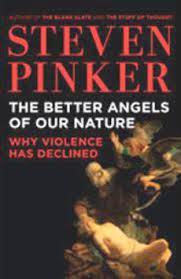 Steven Pinker’s 2011 book, The Better Angels of Our Nature, argued that declines in all kinds of violence, including war, reflect moral progress. I reviewed it enthusiastically (and not just because it cited my own book). But, unarguably, Pinker’s thesis has had a bad few years.
Steven Pinker’s 2011 book, The Better Angels of Our Nature, argued that declines in all kinds of violence, including war, reflect moral progress. I reviewed it enthusiastically (and not just because it cited my own book). But, unarguably, Pinker’s thesis has had a bad few years.
Hardly was his ink dry when violent conflict engulfed the Arab world. Russia has resurrected, zombie-like, a kind of big power military aggression we had thought gone forever. And whereas expanding democratization was a key explanatory pillar for Pinker’s thesis, democracy too has had setbacks, in countries from Venezuela to Thailand, with Egypt’s revolution producing a regime even worse than before,* while China’s authoritarianism looks better (in some eyes) than America’s democratic paralysis.

Comes now John Gray in The Guardian** with an essay boldly headed, “Pinker is Wrong About Violence and War.” The subhead asserts, “[t]he stats are misleading . . . and the idea of moral progress is wishful thinking and just plain wrong.” (My daughter Elizabeth challenged me to respond.)
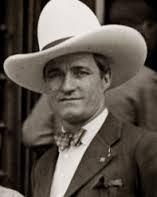
Gray does perfunctorily argue that data here “involves complex questions of cause and effect,” citing some ambiguities whose disregard, he says, renders Pinker’s statistics “morally dubious if not meaningless.”

Rather than get into such nitty-gritty, Gray offers a string of non sequiturs.
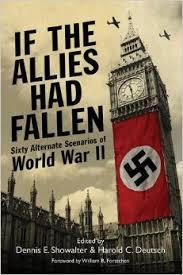
Fatally! This hyperbolic twaddle is belied by Pinker’s comprehensive exegesis of just how different modern advanced societies are, from earlier ones, in terms of the violence ordinary people encounter in everyday life. Thus Pinker addresses not just war, but every other class of violence – something Gray totally ignores.
Part of Pinker’s explanation for the improvement is the influence of Enlightenment values (just one example: Beccaria’s battle against pervasive torture). But Gray makes the customary shallow and cynical attack on the very idea of Enlightenment values. He cites a few backward views held by Locke, Bentham, and Kant. Which proves what, exactly? And Gray alleges (without specifying) “links between Enlightenment thinking and 20th-century barbarism,” dismissing any denial as “childish simplicity.” Call me childish, but I don’t consider Hitler, Stalin and Mao avatars of Voltairean humanism.
But, again, none of this nonsense represents any serious effort to engage with the analysis Pinker laid out in such depth.
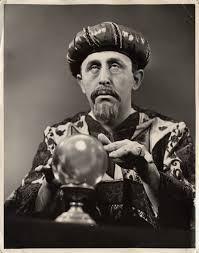
There you have it. “The sorcery of numbers.” The postmodernist mentality at its worst: there’s no such thing as truth.
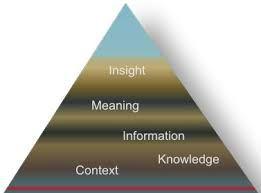
True, statistics can be misused, but surely that doesn’t tell us to eschew their use. Pinker recognized that his book challenged conventional wisdom and would be met with a wall of cynicism like Gray’s. Thus he knew he had to build a powerful battering ram of facts and data – accompanied by thoroughgoing and persuasive interpretive analysis – to break through that wall.
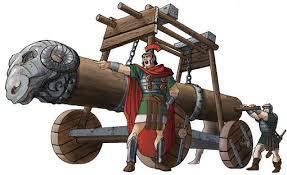
* Though there’s been good news in Sri Lanka, and now Nigeria, where voters transcended traditional divisions to oust the ruling party.
** It had also published a similarly cynical and stupid review (by George Monbiot) of Matt Ridley’s The Rational Optimist.
